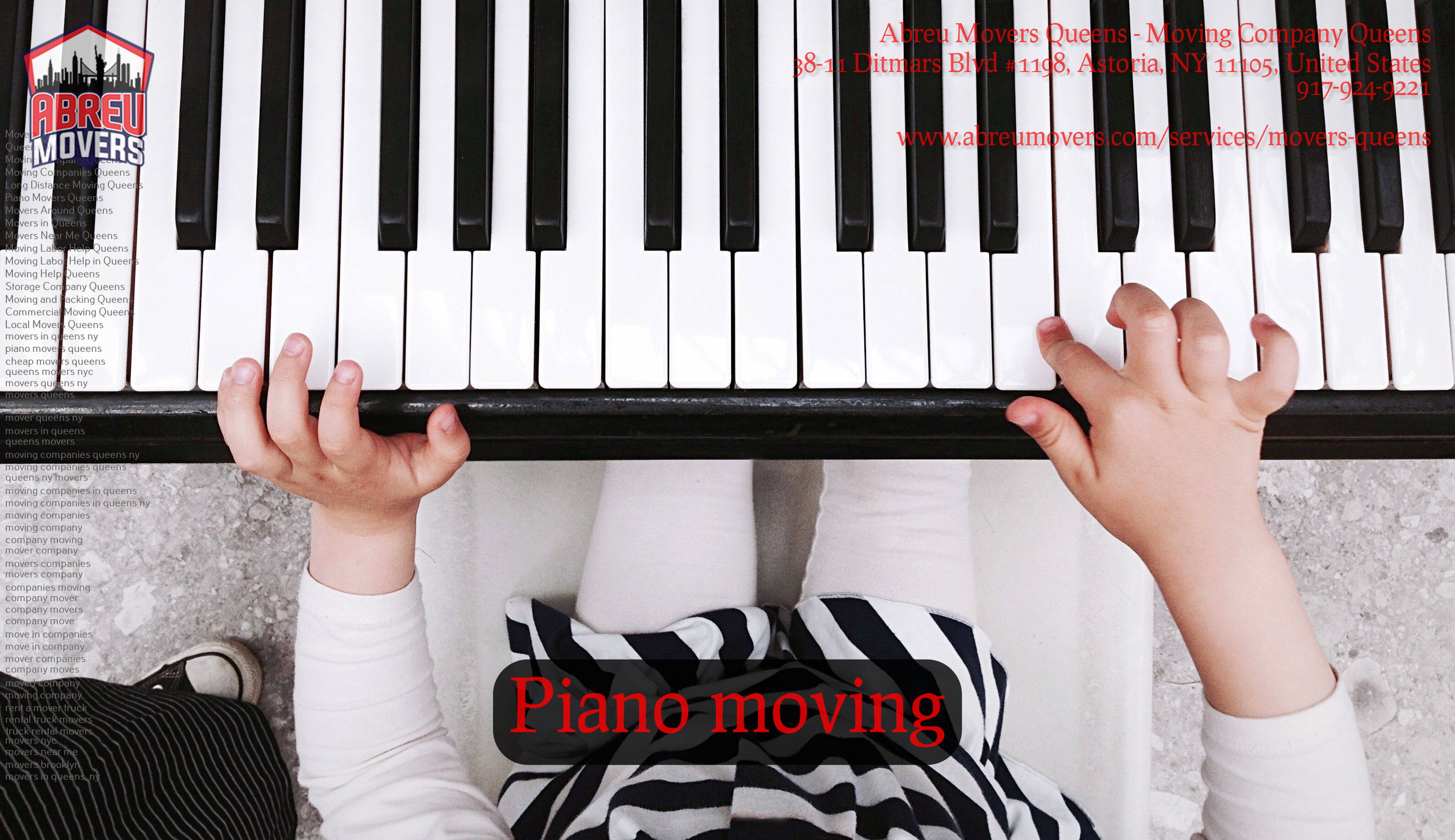

Introduction
Moving large appliances can be a daunting task, especially when you're relocating to a new home in Queens. From refrigerators and washing machines to dishwashers and stoves, these bulky items require special care and attention during the moving process. In this article, we will provide you with essential information on how to safely move your large appliances in Queens. Whether you're hiring professional movers or tackling the job yourself, we've got you covered.
Table of Contents
Why Hiring Professional Movers is Worth It Finding Reliable Moving Companies in Queens Preparing Your Appliances for the Move Securing Proper Equipment for Moving Appliances Protecting Your Floors and Walls Loading and Unloading Appliances Safely Transporting Appliances in a Moving Truck Installing Appliances in Your New Home Common Mistakes to Avoid When Moving Appliances Frequently Asked Questions (FAQs)1. Why Hiring Professional Movers is Worth It
Moving large appliances requires expertise and experience to ensure their safe transport and installation in your new home in Queens. Professional movers have the necessary skills and equipment to handle these heavy items, reducing the risk of damage to both the appliances and your property. Additionally, hiring professionals allows you to focus on other aspects of your move while leaving the heavy lifting to the experts.
2. Finding Reliable Moving Companies in Queens
When searching for a moving company in Queens, it's crucial to find a reliable and reputable one. Look for companies with positive customer reviews and ratings. Ask friends, family, or neighbors who have recently moved for recommendations. Ensure that the movers are licensed and insured to protect yourself against any potential damages or liabilities during the moving process.
3. Preparing Your Appliances for the Move
Before moving your large appliances, it's essential to prepare them properly to prevent any damage during transit. Start by cleaning and defrosting your refrigerator and freezer at least 24 hours before the move. Empty all contents and disconnect any water or gas lines as necessary. Remove any detachable parts such as shelves or drawers and pack them separately.
For washing machines and dishwashers, make sure to disconnect all hoses and drain out any remaining water. Secure all loose parts and tape down doors or lids to prevent them from opening during transport. If possible, consult the user manuals for specific instructions on preparing each appliance for moving.
4. Securing Proper Equipment for Moving Appliances
To ensure the safe transport of large appliances, you'll need to invest in proper equipment such as appliance dollies, straps, blankets, and padding materials. Appliance dollies are specially designed to handle heavy loads and provide stability while moving bulky items up and down stairs or ramps.
Straps help secure the appliances onto the dolly, preventing them from shifting or falling during transport. Blankets and padding materials offer an extra layer of protection against scratches or dents during loading, unloading, and transit.
5. Protecting Your Floors and Walls
Moving large appliances can cause damage to your floors and walls if not properly protected. Before moving day, consider placing protective coverings such as cardboard, plastic sheets, or drop cloths on the floor to prevent scratches or scuff marks. Use corner protectors or padding to shield your walls from accidental bumps or scrapes.
6. Loading and Unloading Appliances Safely
When loading appliances onto the moving truck, make sure to secure them properly to avoid shifting during transit. Use straps or ropes to hold them in place and prevent any movement that could lead to damage.
During unloading, take extra care when maneuvering the appliances through doorways and narrow spaces. Use furniture sliders or blankets underneath the appliances to reduce friction and ease the process. If necessary, enlist the help of additional movers to ensure a smooth and safe unloading experience.
7. Transporting Appliances in a Moving Truck
Properly arranging appliances inside the moving truck is crucial to prevent damage during transportation. Place heavier items at the bottom and distribute weight evenly throughout the truck. Use straps or bungee cords to secure appliances against the walls or tie-down points within the truck.
Avoid stacking heavy items on top of delicate appliances, as this can cause http://reidmkvd559.lowescouponn.com/efficient-packing-techniques-for-large-furniture-items crushing or shifting during transit. For added protection, consider covering the appliances with blankets or moving pads to reduce the risk of scratches or dents.
8. Installing Appliances in Your New Home
Once you arrive at your new home in Queens, it's time to install your large appliances properly. Before connecting any water or gas lines, ensure that they are in good condition and free from any leaks or damages. Follow the manufacturer's instructions for installation carefully, or consult a professional if needed.
Take measurements beforehand to ensure that the appliances fit through doorways and into their designated spaces in your new home. If required, hire a licensed technician for specialized installations such as gas lines or electrical connections.
9. Common Mistakes to Avoid When Moving Appliances
Moving large appliances can be challenging, but avoiding common mistakes can save you from unnecessary stress and potential damages. Here are some key mistakes to avoid:
Not properly preparing appliances: Failing to clean, defrost, or disconnect appliances before the move can lead to leaks, mold growth, or damage during transit. Lack of proper equipment: Attempting to move heavy appliances without the appropriate tools such as dollies, straps, and padding materials increases the risk of accidents and damage. Improper loading and unloading techniques: Careless handling during loading and unloading can result in scratches, dents, or even injuries. Take your time and use proper lifting techniques. Neglecting to secure appliances during transport: Failure to secure appliances within the moving truck can cause shifting or falling that may result in severe damages. Skipping professional help when needed: If you're unsure about moving large appliances yourself or lack the necessary equipment, it's best to hire professional movers or technicians for safe and efficient relocation.Frequently Asked Questions (FAQs)
Q1: Can I move large appliances by myself without professional help? A1: While it's possible to move large appliances by yourself with the right equipment and knowledge, hiring professionals is highly recommended for a safer and more efficient experience.
Q2: How much does it cost to hire professional movers in Queens? A2: The cost of hiring professional movers in Queens can vary depending on several factors such as the distance of the move, size of the appliances, and additional services required. It's best to request quotes from multiple moving companies for accurate pricing information.
Q3: How far in advance should I schedule my appliance move? A3: It's advisable to schedule your appliance move at least a few weeks in advance to secure availability with professional movers. During peak moving seasons, it's recommended to book even earlier.
Q4: Are moving companies responsible for any damages that occur during the move? A4: Reputable moving companies in Queens typically offer insurance coverage for damages that occur during the move. However, it's essential to review the terms and conditions of the insurance policy before hiring a company.
Q5: Can I leave items inside my appliances during the move? A5: It's best to empty all contents from your appliances before moving them. Leaving items inside can increase the risk of damage or cause imbalance, making transportation more challenging.
Q6: How can I ensure that my appliances are properly installed in my new home? A6: Follow the manufacturer's instructions for installation carefully. If you're unsure, consult a professional technician who specializes in appliance installations for proper guidance.
Conclusion
Moving large appliances requires careful planning, preparation, and execution to ensure a smooth and successful relocation. By following the tips and guidelines provided in this article, you'll be well-equipped to tackle the task of moving your appliances in Queens with confidence. Whether you choose to hire professional movers or handle the job yourself, prioritize safety and take necessary precautions to protect both your appliances and your new home.